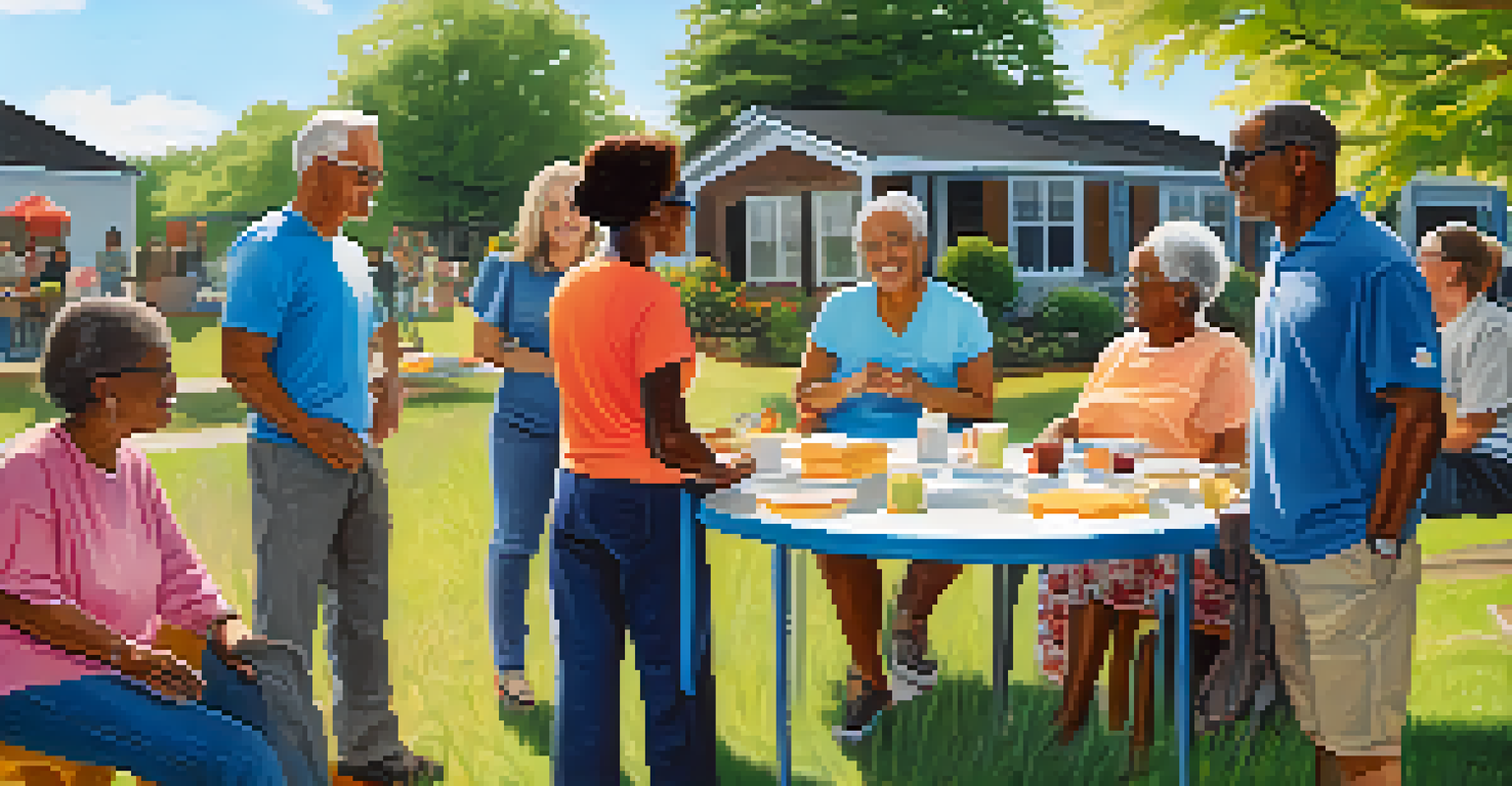Understanding the Impact of Homeowners Associations

What is a Homeowners Association (HOA)?
A Homeowners Association, or HOA, is a governing body in a community that establishes rules and regulations for property owners. These associations are typically formed in planned communities, condominiums, or subdivisions. They exist to maintain common areas, enforce community standards, and enhance property values.
The greatness of a community is most accurately measured by the compassionate actions of its members.
Being part of an HOA means homeowners agree to abide by certain rules, which can range from architectural guidelines to maintenance requirements. This can lead to a more cohesive community appearance and overall quality of life. However, these rules can sometimes feel restrictive, especially for those who cherish their individuality.
In essence, an HOA serves as a self-regulating body that ensures everyone in the community shares a common vision for their neighborhood. This can foster a sense of belonging and pride among residents, making it crucial to understand the role and impact of HOAs in your living experience.
Benefits of Homeowners Associations
One of the most significant benefits of an HOA is the maintenance of common areas. This can include landscaping, recreational facilities, and pools, which enhances the overall appeal of the community. Many homeowners appreciate the convenience of not having to manage these spaces themselves, as the HOA takes care of them.

Additionally, HOAs often provide a structured approach to community living. They can organize events, foster neighborly interactions, and create a sense of community. This can lead to lasting friendships and support networks that enrich the homeowner experience.
HOAs Maintain Community Standards
Homeowners Associations help preserve property values and enhance community aesthetics by enforcing rules and maintaining common areas.
Furthermore, living in an HOA can contribute to property value stability. By enforcing rules and maintaining standards, HOAs can help prevent property neglect and maintain the aesthetic appeal of the neighborhood, making it a more attractive option for potential buyers.
Drawbacks of Homeowners Associations
While there are many benefits, there are also drawbacks to consider when it comes to HOAs. One major concern is the fees associated with membership, which can vary widely depending on the community. These fees support the maintenance and management of common areas but can add to a homeowner's monthly expenses.
Community is much more than belonging to something; it’s about doing something together that makes belonging matter.
Another potential downside is the enforcement of rules. Homeowners might find themselves facing fines for minor infractions, such as not properly maintaining their yard or making unauthorized modifications to their homes. This can lead to frustration and feelings of being overly monitored.
Additionally, the decision-making power of HOAs can sometimes lead to disagreements among residents. Issues like changes in leadership or community rules can create tension, making it important for homeowners to be actively involved in HOA meetings and decisions.
The Role of Community Engagement in HOAs
Community engagement is vital for the success of any HOA. When residents actively participate in meetings and committees, they help shape the direction of their community. Engaged homeowners can bring fresh ideas and perspectives that benefit everyone.
Moreover, open lines of communication between the HOA board and residents foster transparency. This can lead to a stronger sense of trust and collaboration, making it easier to address concerns and resolve conflicts. Regular newsletters or community forums can keep everyone informed and involved.
Community Engagement is Key
Active participation in HOA meetings fosters transparency and trust, leading to a more vibrant and cohesive neighborhood.
Ultimately, an engaged community can lead to a more vibrant and cohesive neighborhood. When residents feel heard and valued, they are more likely to invest their time and energy into making their community a better place to live.
How to Choose the Right HOA
Choosing the right HOA can significantly impact your living experience. Before moving into a community, it's essential to research the association's rules, fees, and overall reputation. Look for reviews from current and past residents to gauge their satisfaction.
Consider attending an HOA meeting before you buy. This can give you insight into the community dynamics and how the board operates. It’s an excellent opportunity to ask questions and understand the level of resident engagement.
Additionally, pay attention to the financial health of the HOA. A well-managed association will have a clear budget and reserve funds for future repairs and improvements. This not only ensures the community remains attractive but also protects your investment.
Legal Aspects of Homeowners Associations
Homeowners Associations operate under a set of legal documents, including covenants, conditions, and restrictions (CC&Rs). These documents outline the rules governing the community and the rights and responsibilities of homeowners. It's crucial to read and understand these documents before purchasing a property.
In some cases, homeowners may find themselves in legal disputes with their HOA. This could involve issues like rule enforcement or financial disputes. Knowing your rights and responsibilities as a homeowner can help you navigate these situations more effectively.
Legal Knowledge is Essential
Understanding the legal documents and rights associated with HOAs is crucial for homeowners to navigate potential disputes effectively.
If conflicts arise, mediation or legal counsel may be necessary. Many HOAs have procedures in place for dispute resolution, which can help maintain harmony within the community. Understanding these legal aspects can better prepare homeowners for the unique challenges of living in an HOA.
Future Trends in Homeowners Associations
As communities evolve, so too do the roles of Homeowners Associations. There is a growing trend towards more flexible and adaptive rules that cater to the diverse needs of residents. HOAs are starting to embrace technology, making communication and management more efficient.
Moreover, many HOAs are focusing on sustainability and eco-friendly practices. This includes encouraging green spaces, recycling programs, and energy-efficient improvements. These initiatives not only benefit the environment but also appeal to a growing demographic of environmentally conscious homeowners.

Looking ahead, the future of HOAs may also involve more community-driven governance. By prioritizing resident input and collaboration, HOAs can create a sense of ownership and pride among homeowners, ultimately leading to stronger, more connected communities.